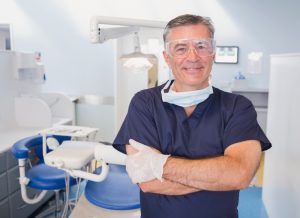
Dry mouth, or xerostomia, has a variety of causes–from simple stress to chemotherapy for cancer. Unfortunately, dry mouth often causes oral health issues such as dental decay. Learn the reasos and treatments for dry mouth from the skilled dentists at D&G Dental in West Orange, NJ.
What’s the harm in dry mouth?
The answer is you can experience plenty of oral health problems if your mouth is chronically dry. Saliva is what lubricates soft oral tissues and the esophagus as well. It starts the digestive process with an enzyme called amylase. This natural chemical helps break down the starches and sugars we consume daily. Without it, the esophagus and stomach have a difficult time breaking up food into its basic elements.
Also, without the lubrication of saliva, your mouth struggles to taste, speak and swallow–actions we all take for granted until we can’t do them properly. In fact, the drier the mouth becomes, the more mouth sores, cracks in lips and other oral tissues develop.
Saliva has great antibacterial properties, too. Without it, the oral bacteria which naturally live in our mouths, and in plaque and tartar, thrive–leading to tooth decay and even gum disease.
The causes of dry mouth
Doctors at the Mayo Clinic assert that simple dry mouth frequently occurs as we age. Specifically, women over the age of 40 seem most prone. Other things such as stress and lack of hydration–that is, not drinking enough water– factor into the condition. Excessive caffeine, alcohol, spicy foods and salt dry out oral mucosa, too.
Beyond these problems, many prescription drugs lead to xerostomia. If you suspect one of your regular medications is at fault, check with your primary care physician or pharmacist to confirm that the drug has dry mouth as a side effect.
Other precipitating factors include:
- Diabetes
- HIV
- Parkinson’s Disease
- Many autoimmune disorders such as Sjogren’s Syndrome
How to treat West Orange, NJ dry mouth
Drs. Medhat Dawoud, Paula Gencarelli and Shahin Ghobadi can confirm a case of xerostomia. Many times, they recommend simple strategies such as drinking 8 glasses of water daily and chewing sugarless gum. Limiting coffee, tea and colas, along with cutting down on alcohol consumption and salt, helps. And, of course, smoking cessation not only improves oral mucosa, but it benefits the rest of your health, too.
At night, try a bedroom humidifier to add moisture to the air, and if possible, breathe through the nose rather than the mouth. Over-the-counter dry mouth rinses and saliva substitutes help, too.
Learn more
Be sure to keep 6-month exam and cleaning appointments with D&G Dental. Brush and floss twice a day, and use an ADA-approved fluoride toothpaste and soft brush. Good oral hygiene keeps those salivary glands working!
Contact D&G Dental today to arrange your routine appointment. Be sure to ask your dentist about dry mouth and what can be done to correct it.
